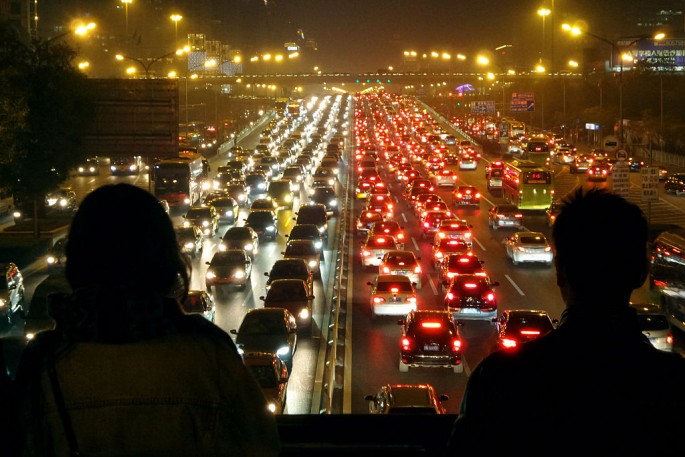A group of car owners in Beijing have taken matters into their own hands to provide a solution to the capital's increasing traffic woes, according to an article by China Daily. The answer? Carpooling.
"I learnt of this car-sharing app from my friends. They said it's quite nice," said Zhang Jiayu, a 29-year-old man who works at the financial district of Guomao. Through the ride-sharing app, his daily commutes to and from work have become less lonely and more interesting.
Within the past two months, Zhang has already given a lift to 27 fellow commuters who share his route. Through ride-sharing, commuters also get to slash about half of the fare they usually spend for one taxi trip.
"It's not a lot of money," said Zhang, "but enough to cover my fuel costs. Besides, it is very interesting experience. Those who want a lift are from different walks of life. They include people with occupations such as doctor, IT engineer, red wine businessman, music teacher. . . . I have learnt so many things I never knew before."
Zhang is only one of over 18 million riders who use the carpooling app called Shunfengche, which was launched by Didi Chuxing, one of the country's largest car-hailing service providers, last July.
In a city like Beijing, which is often plagued by horrendous traffic jams, carpooling is cheaper and saves a lot of time.
There are currently 60,000 taxis that operate in the city, while there are over 4 million private cars. If 10 percent of the total private car owners in Beijing participate in ride-sharing, the roads would be rid of 400,000 cars.
"This city has little capacity to accommodate more private vehicles, which means a great deal if carpooling services are needed," said Liu Qing, president of Didi Chuxing, in an interview with China Daily.
Despite the popularity of ride-sharing, firms like Didi Chuxing and even Uber still haven't gained legitimacy in the country. Both firms have been summoned several times by local governments to observe Chinese laws.
Local authorities have also intensified their crackdowns on car-hailing services. Those who are caught can face fines of up to 10,000 yuan.






















